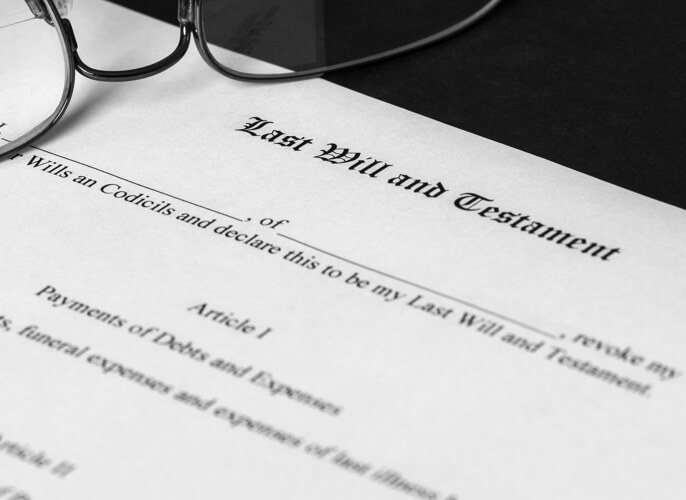Put simply, your will is the only way to ensure that your estate is left to the people and causes that are important to you. As such, it’s essential that you get it right.
Here at ICS Law, we have helped countless individuals to draw up a comprehensive, legally-binding Last Will & Testament that accounts for the entirety of their estate, ensuring money, property, possessions and investments go to the right people and places. We are well aware, however, that many people simply do not know where to start when it comes to will writing. Understandably, outlining your final wishes can feel like an overwhelming and insurmountable task, and so it becomes easy to continuously put it off, so to speak. That’s why today, we have put together a comprehensive will writing guide, to help you get started.
1. First things first, value your estate!
It’s essential that, before you do anything else, you get a feel for what your estate is worth. You can do this by drawing up a simple list compiling all of your assets and any debts. It can be a good idea to regularly review this list, as the value of your assets can fluctuate over time.
Your estate will likely be made up of assets such as:
- Property
- Savings
- Insurance, i.e. life assurance or an endowment policy
- Investments, i.e. stocks, shares or trusts
- Pension funds that include a lump sum payment upon death
- Vehicles
- Furniture and household items
- Jewellery, antiques and personal belongings
You may need to consider debts such as:
- Mortgages
- Credit cards
- Overdrafts
- Equity release policies
- Outstanding loans
2. How will you divide it up?
Depending on how many people you have close to you in your life, this part of the process may be fairly straightforward or may require quite a bit more thought. This is also the time to consider whether you may wish to leave any of your estate to a charitable cause.
It’s essential that you are 100% clear on what you want to happen to your estate in its entirety so that the process of dividing it up in the event of your death is as straightforward as possible.
You will need to consider the following things:
- Who do you want to benefit from your will?
- Are there any specific gifts you wish to bequeath to certain people?
- What about the residue of your estate? Where will any leftover property or money go, after funeral and administrative expenses have been paid?
- What do you wish to happen if any of your beneficiaries die before you?
- Do you want to leave any donations to charitable causes? If so, make sure you have the correct information (name, address and registered charity number) in order to ensure the charity will definitely receive the gift.

3. Who will execute your will?
Now it’s time to choose your executors.
In case you are wondering, an executor is the person or people who will manage the distribution of your estate in the event of your death.
It’s important to carefully consider who you wish to appoint, as the role of executor comes with a great deal of work and responsibility. Ensure you ask your chosen individual(s) first, explaining to them what is involved and checking that they are willing to act on your behalf.
You should choose at least two executors, so that they can share the responsibilities between themselves. Executors can be friends or family members. They don’t need to be related to you, you just need to trust them and be sure that they are comfortable taking on the responsibility.
4. It’s time to write up your will
With all of your decisions in place, it’s now time to begin writing up your will. You can do this via a number of avenues, depending on your own personal preference.
- Lawyers are the most popular choice when it comes to writing up your will. Professional guidance from a solicitor or chartered legal executive, for example, can be incredibly beneficial. You will want to check that they are licensed with a professional body, such as The Law Society or the Solicitors Regulation Authority. Here at ICS Law, we have decades of experience in assisting individuals to draw up their wills.
- Professional will writers may also assist you with the writing of your will. If you opt to work with a professional will writer, ensure they are a member of a body such as The Society of Will Writers or the Institute of Professional Willwriters.
- Charities such as AGE UK may also assist you, offering free will-drafting services and advice.
- DIY wills are also an option. You can certainly make your own will, as long as you ensure it is valid. We highly recommend you seek professional advice before drawing up your own will.

5. Sign on the dotted line
Now it’s time to sign your will to make it legally binding. This must be done in the presence of independent witnesses.
6. Finally, store your will securely
The final step is to ensure your will is stored safely and securely. Leave it with your solicitor or bank, or store it at home. Your executors must know where it is stored.
Here at ICS Law, we are equipped with decades of experience and can assist you with every step of the will writing process. Contact us today for expert guidance.



